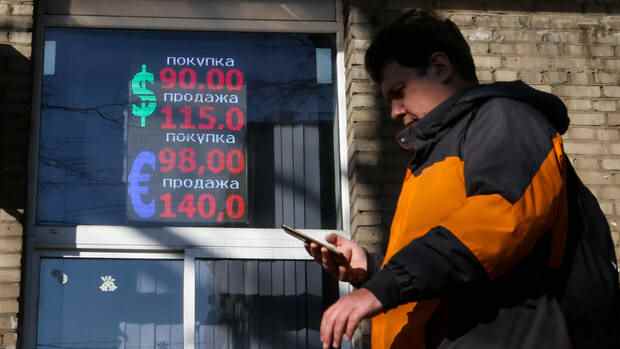Moscow Children’s birthday party in the Moscow cafe “Piterburger”. Eight boys between the ages of ten and eleven buzz around Jelena. “I want the Stary Bro!” Cyril yells in her left ear before changing his mind and wanting a burger with chicken. On the right, little Mischa has chosen a burger with crabs. Half of the children also get french fries. Everyone wants juice or cola, some both.
Pure stress. Jelena is happy when she finally entered the order, but then the shock: When she wants to pay with the smartphone app, the pay machine refuses.
Jelena is a customer of the state bank VTB, like around 14 million other Russians. Years ago, many of them switched to the convenient cashless service by phone – Apple Pay, Google Pay or Samsung Pay. You don’t carry your wallet or credit card with you.
Well, from one day to the next, due to the sanctions, it’s over: the service has been blocked. Luckily, Jelena quickly finds her way around despite the chaos around her.
Top jobs of the day
Find the best jobs now and
be notified by email.
She tries to pay through her Sberbank app and is lucky. Although Russia’s largest money house is also on the US sanctions list, the cards are not blocked. Not yet. The payment works, the birthday is saved. Elena takes a deep breath.
The people of Russia feel the sanctions
In the first few days after the sanctions were imposed, many Russians felt the effects. Because even if politicians from the USA and the EU emphasize that they primarily want to hit the Kremlin leadership, ordinary people noticed the consequences first.
For example, airlines have canceled all flights to Europe. “Because of the restrictive measures taken by the EU, including a ban on flying through EU airspace, the airline Royal Flight is forced to cancel the carriage of passengers on the Moscow-Varadero (Cuba) route from 28.02. until March 28th, 2022,” the charter airline informed its customers.
>> Read also: “Worst-case scenario”: Leasing companies have to fear for planes because of the Ukraine war
Thousands of Russians who wanted to escape the long Moscow winter to the Caribbean, Mexico, Cuba or the Dominican Republic are now having to change their plans. The vacation expires. For others it is even more complicated. If they’re heading west, they’re stuck somewhere abroad and have to figure out how to get home.
For many, on the other hand, a holiday in the sun will soon become a dream anyway. The declining ruble makes foreign travel practically unaffordable.
Life in Russia is getting expensive
In anticipation of the sanctions, rates in the exchange offices had already skyrocketed last week. There were still snakes. The dollar seems to many to be the safest investment.
Others – if they could afford it – quickly bought a new telephone or a washing machine with foresight. The prices for household appliances and electronics have risen by 80 percent within a week. The salespeople sometimes couldn’t keep up with the re-sticking of the price tags.
In the supermarkets, on the other hand, the price surge has not yet fully arrived. Fruit and vegetables, which often have to be imported, have become slightly more expensive. But bread, flour or milk are still stable for the time being. Many are therefore already covering themselves up as far as possible. Here, too, it is only a matter of time before prices rise.
The first category of goods to be affected is likely to be alcoholic beverages. At least in Moscow, vodka has long ceased to be people’s favorite drink. Beer, wine, cognac and whiskey have been gaining market share for years – many come from abroad. The largest importers and distributors of alcohol, Simple Wine and Luding, temporarily suspended deliveries to stores on Monday after the ruble exchange rate quickly surpassed the 90 ruble per dollar mark, which is critical for retailers.
The Kremlin shows little understanding
On Tuesday, Luding resumed deliveries, but with an “adjustment of prices,” according to a company press release. The shops will pass this on to the customers.
People are concerned, and these upheavals are an important topic of conversation on the streets of Moscow and in shops. Many express concern about rising prices and missing products – and ask themselves: Is this just the beginning?
Kremlin spokesman Dmitri Peskov ignored the unrest of the Russians in view of the expected price increase: “This is an initial, unfortunately hyper-emotional reaction from consumers,” he said. In a few days, the excitement will subside and the public will take a more “sober” view of the situation, he predicted.
More: Biden consults with allies on further consequences for Russia
